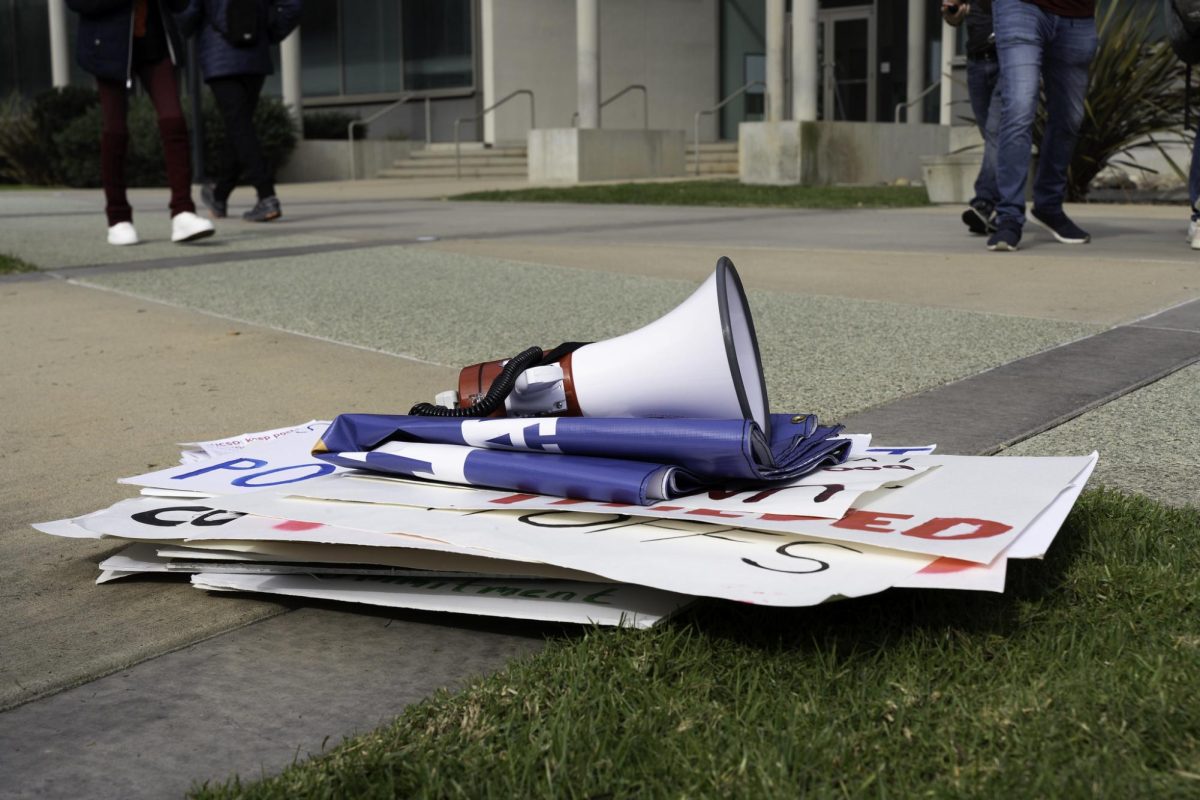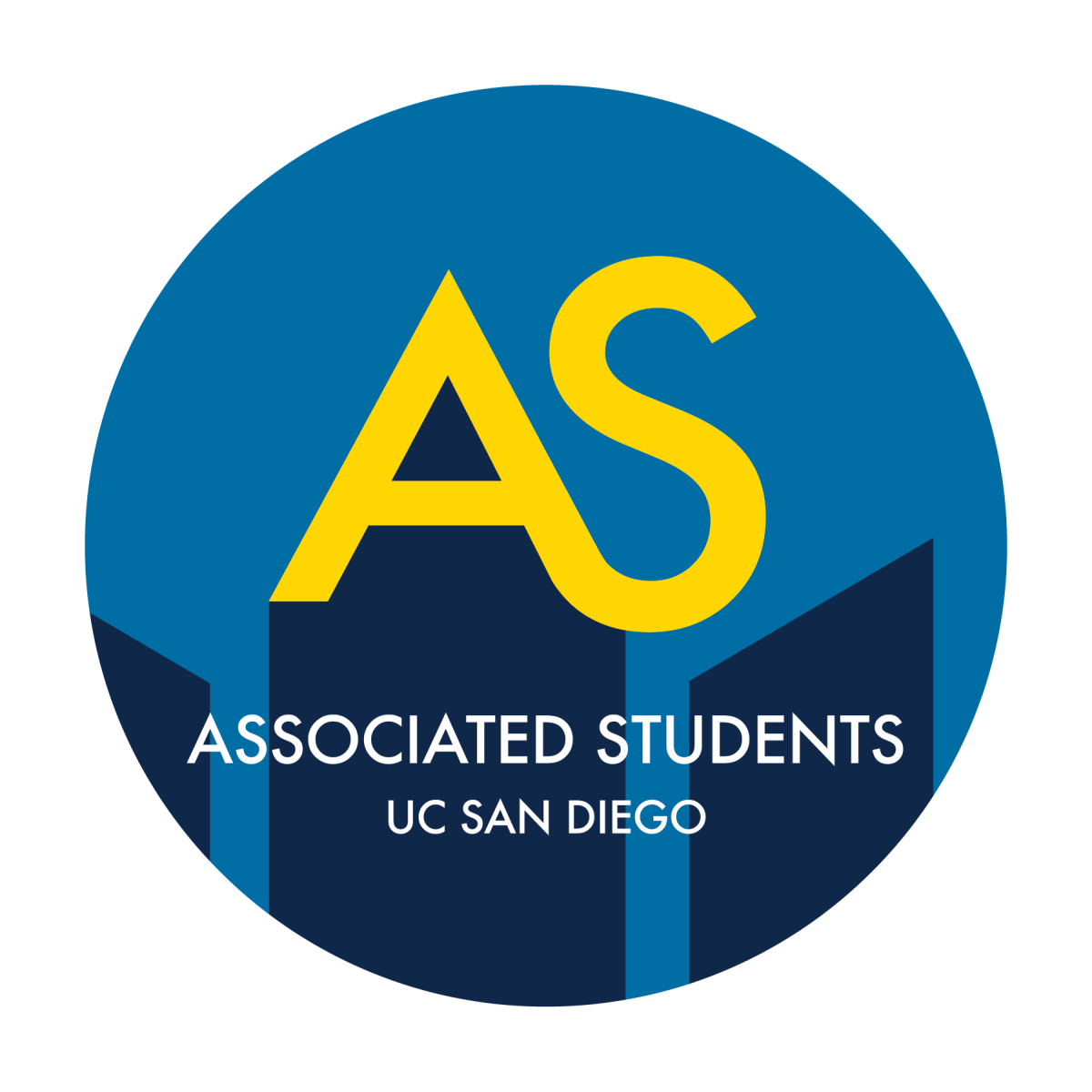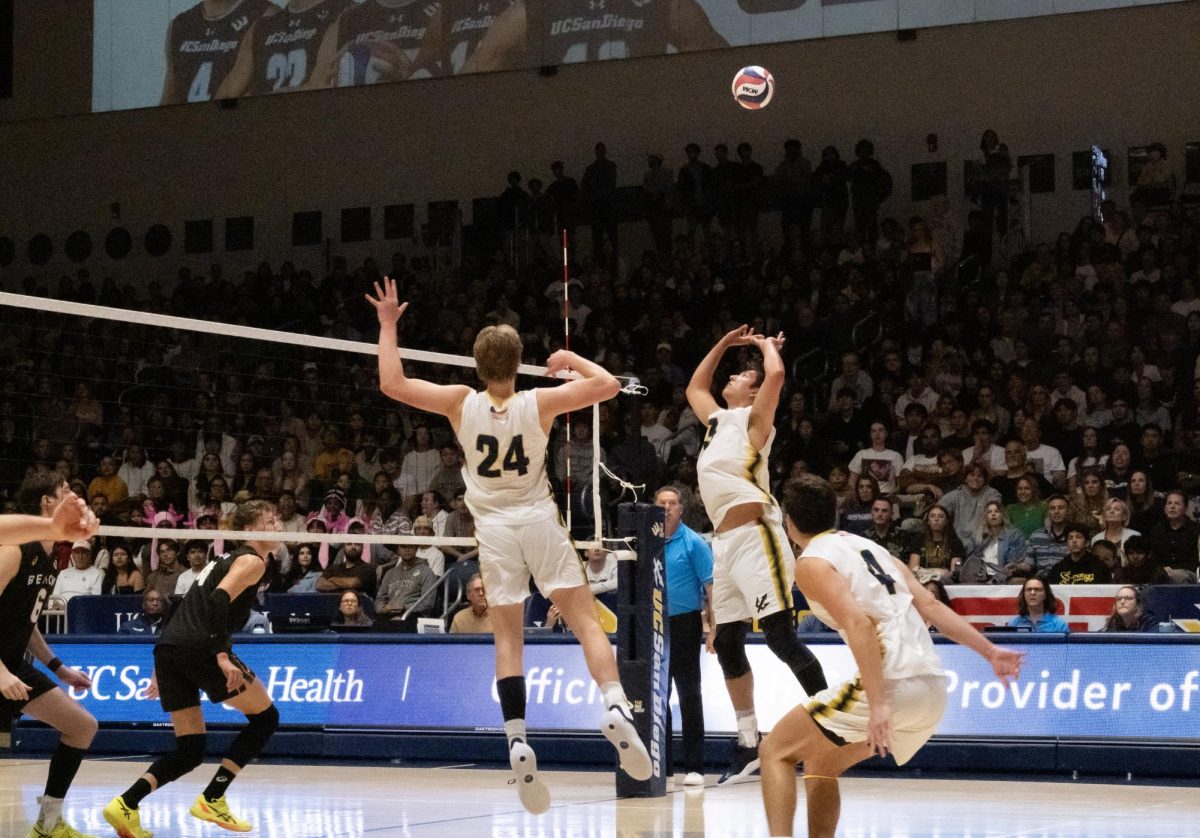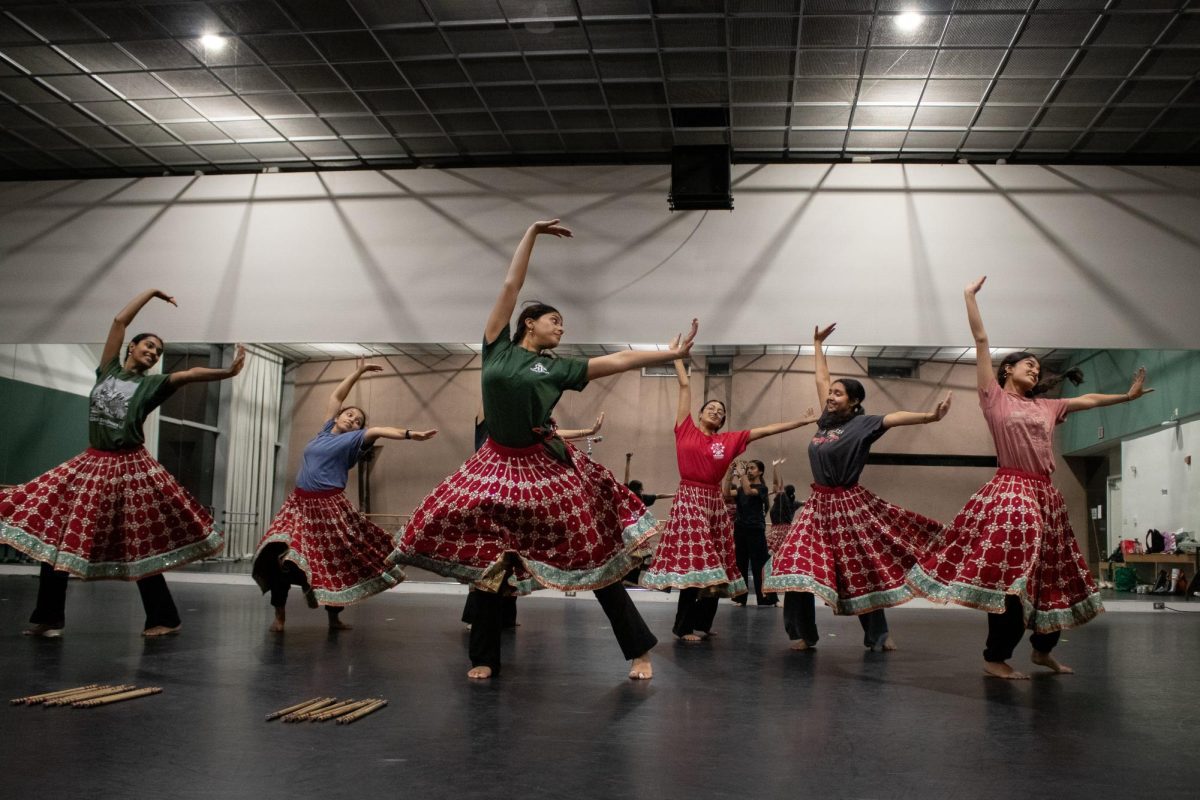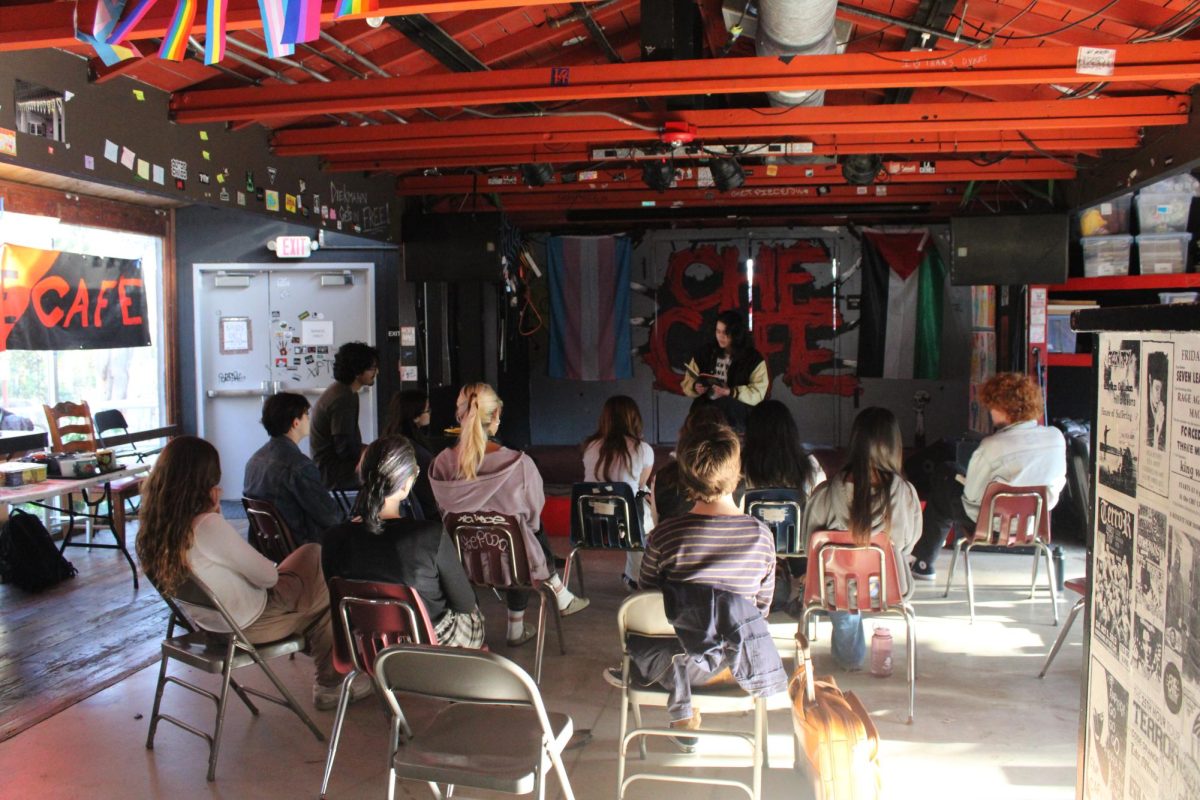Yes on PRESS
The PRESS Referendum has officially passed, with 73% of votes in favor. All other elections results are available on our website here. The voting period was open from April 7 at 10 a.m. until April 11 at 4 p.m.
The Guardian’s recent budget crisis has called its survival into question. To ensure longevity without sacrificing independence, The Guardian’s current Editorial Board is pursuing a Student Fee referendum to sustain its funding in the long-term. The fee is called P.R.E.S.S., which stands for Protect our Right to Express Student Stories and is modeled after analogous fees at the other UC campuses. All eligible undergraduate and graduate students are able to vote. Join us in saving The UCSD Guardian and vote Yes on PRESS!
Visit our Spring Quarter Programming page to see all the events we’re hosting throughout Week 1 and 2! Stop by our office to meet the staff, improve your journalistic skillset, and ask us questions about PRESS at our live Q&A.
Want to read more about why PRESS is right for UCSD? See our Editor-in-Chief’s letter here.
Interested in helping more? Send an email to [email protected] to learn how you can contribute to the PRESS campaign.
What is P.R.E.S.S.?
P.R.E.S.S. (Protect our Right to Express Student Stories) is a proposed quarterly student fee of $3.50 per student to fund the operations and longevity of The UCSD Guardian, UCSD’s official award-winning independent newspaper by students for students. On the Spring ballot, all undergraduate and graduate students will have the opportunity to vote on the implementation of this fee beginning in Fall 2025.
At a Glance
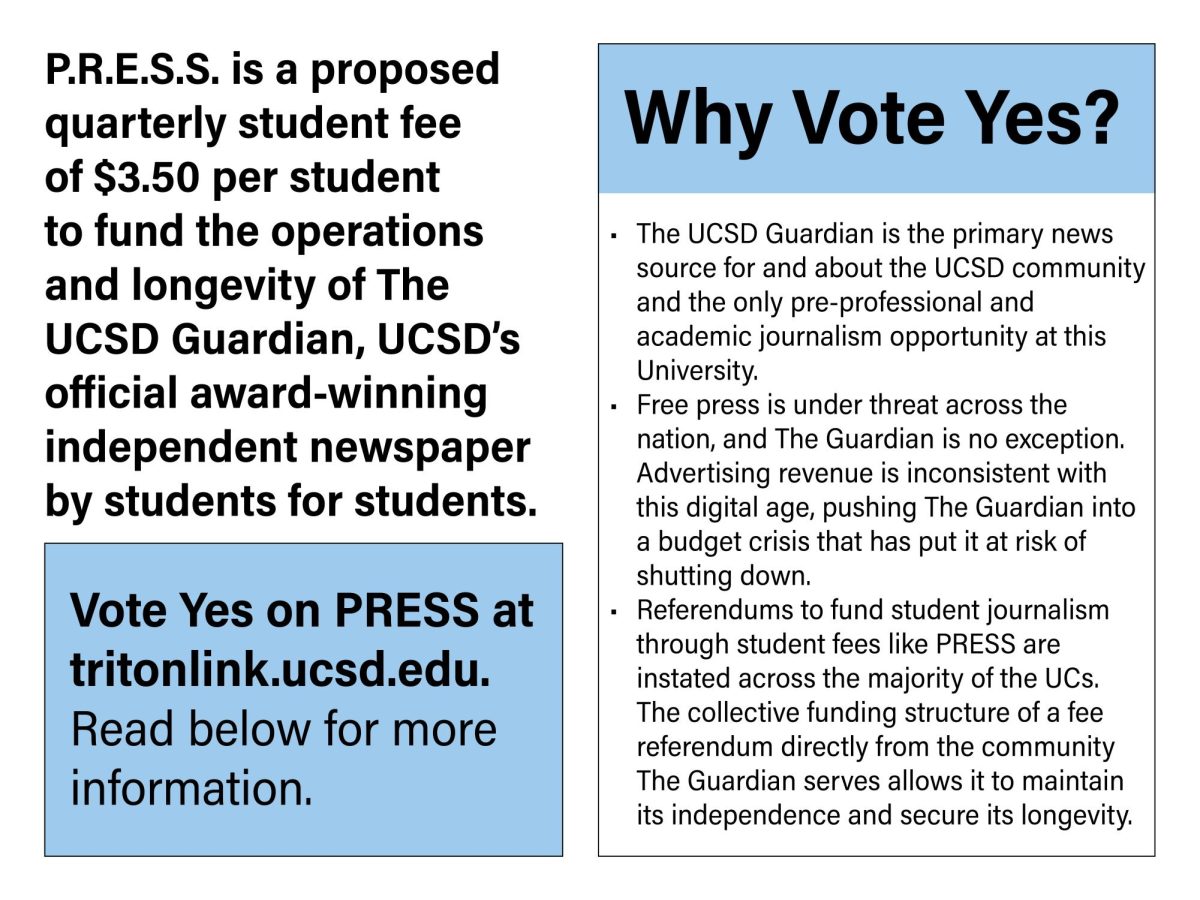
Guaranteed Use of Funds
If passed…
- 71% of collected fee will be used exclusively for programs and services outlined in the referendum:
- Maintaining free distribution and access to our digital and print work by:
- Supporting around-the-clock, on-the-ground coverage of student-interest happenings
- Compensating our editors appropriately
- Covering the cost of digital and print operations
- Long-term advancement and expansion projects to increase professionalism and quality:
- Reinstate a staff and/or faculty advisor for mentorship and administrative longevity and support business staff salary
- Host pre-professional journalism and media networking events
- Provide expansion opportunities in the following sectors: Long-term investigative projects, Multimedia storytelling, Internship programming, Staff and leadership expansion, Training and development
- 29% of this fee revenue will be directed to the Financial Aid & Scholarship Office to be awarded based on student need, as required for all student fee referendums.
Fund Allocation
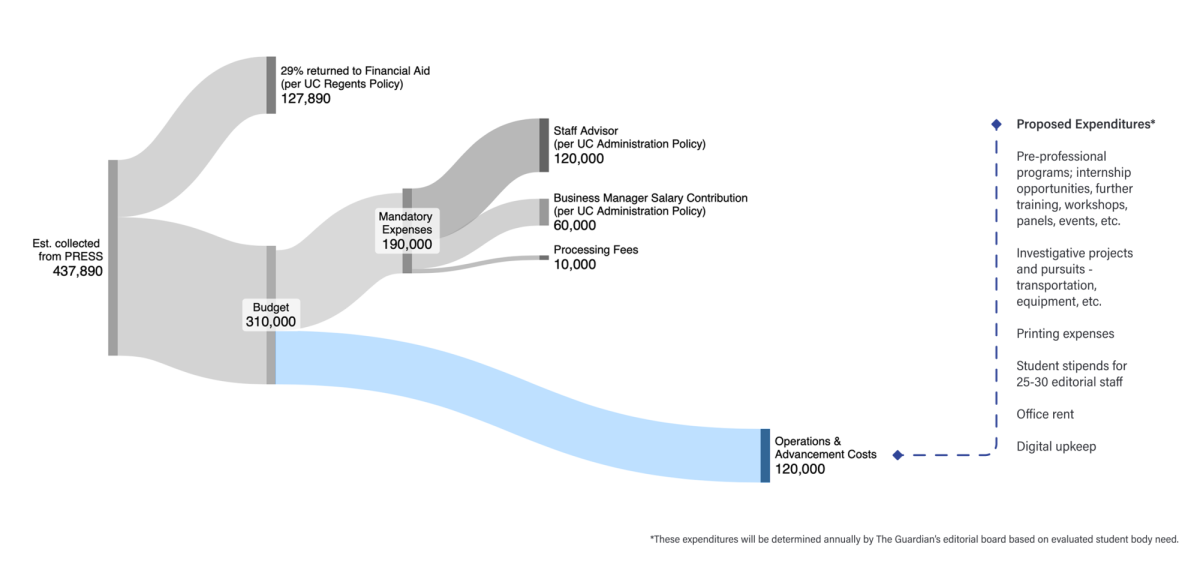
This is a proposed budget breakdown and is not necessarily reflective of The Guardian’s expenditures.
The Guardian will manage the collected funds from the PRESS fee through our student-led Editorial Board.
- The Editorial Board is led by The Guardian’s student-elected editor-in-chief and managing editor, who will have final discretion on the composition and management of the Editorial Board with one regulation: students shall be the only voting members on the Editorial Board. If applicable, any professional staff at The Guardian can be consulted to offer advisory support only.
- The Board’s mission is to act and advise in the best interests of The Guardian as a news organization in public service to the UCSD student body.
- The current Editorial Board is non-hierarchical, composed of individual editors who have volunteered to serve in this extra capacity.
Disclosure commitment: The Guardian’s Editorial Board will publish a projected budget breakdown online at ucsdguardian.org to maintain transparency at the beginning of each fiscal year. As with the rest of The Guardian’s work, student feedback and engagement is welcome and encouraged.
Why a referendum? Why now?
- The degradation of free press across the globe is of dire concern.
- As free press has decreased, information and news has been sensationalized for entertainment. In order to fund themselves, many media outlets have traded in transparent, ethical, and accessible reporting.
- The Guardian refuses to compromise on its core values. A funding structure reliant on advertising is increasingly inconsistent in this digital age.
- Current expenses
- Labor: Editorial staff of 25+ students
- Operations:
- Printing
- Online platforms
- Rent
- Proposed expenses
- Labor: Increasing editorial staff stipends and potential return to general staff commissions
- Operations:
- Investigative and large-scale project resources (transportation, multimedia equipment, etc.)
- Pre-professional programming
- Printing
- Online platforms
- Equipment:
- Office maintenance
- Reportage materials
- Current expenses
- This lack of long-term funding infrastructure has already resulted in significant cuts. It may soon further result in: decreased scope of coverage, paywalled work, mass staffing layoffs.
- At UCSD, The Guardian is the first line of defense to maintain independent and local student journalism.
- UCSD does not have a formal academic journalism program, making The Guardian the largest pre-professional resource on campus to build and refine the journalistic skillset.
- The Guardian reaches thousands of regular readers across campus and online. In the 2024-25 academic year, it has distributed over 15,000 print issues, amassed over 200K website views, and accrued a total following of over 12,000 across social media platforms.
- On a petition in support of student press rights and the survival of independent student journalism at UCSD, The Guardian received over 1000 signatures in under 24 hours, including over 30 student and community organizations.
- In order to maintain its independence and longevity, The Guardian is seeking a fee referendum, as a collectively funded budget aligns most closely with its by-student-for-student ethos.
- Referendums for student fees to fund journalism are instated across the majority of University of California institutions and others across the country, including UC Berkeley, UCLA, UC Irvine, and UC Santa Cruz.
A referendum is a campus-wide vote on any student-proposed fee-initiatives that will introduce, renew, or increase compulsory student fees, such as P.R.E.S.S or the recent U-Pass & Student Transportation Fee. Other referendums at UCSD have included the Counseling and Psychological Services (CAPS) & Student Mental Health Fee (2020) and the University Center Fee Increase (2015).
PRESS is open for undergraduate and graduate student input and was approved to be on the ballot by the UCSD Associated Students (AS) Council, UCSD Graduate & Professional Student Association (GPSA), the Vice Chancellor of Student Affairs, and the Chancellor, as required for all referendum ballot measures. Like all referendums, it will pass if the number of students casting a vote exceeds 20% of all eligible voters, and a majority of voters approve the measure.
As a student newspaper, The Guardian represents the UCSD student voice to the world in similar function to the campus newspapers at other higher education institutions. Student fee referendums to fund journalism and/or student media are instated across the majority of University of California institutions, including UC Berkeley, UCLA, UC Irvine, and UC Santa Cruz, at costs of up to $6.00. At UCSD, this fee initiative will allow The Guardian to maintain its independence by receiving funding directly from the constituency it serves, without the oversight or intervention of student government, administration, or any other entity.
Who is The UCSD Guardian?
The UCSD Guardian is UC San Diego’s official award-winning, student-run independent newspaper. The Guardian is the only pre-professional journalism program at UCSD and the primary news source for the UCSD community and the San Diego public. Since 1967, The Guardian’s journalists have worked diligently to cover key events with timeliness, transparency, and quality.
Who We Are
The Guardian is both the legacy paper at UCSD and the largest pre-professional journalism-related program on a campus without an academic journalism department. With thousands of readers online and in print, The Guardian has served the UCSD community in many ways, including:
- Reporting stories from a student perspective across six interdisciplinary journalism sections: News, Features, Opinion, Arts & Entertainment, Lifestyle, and Sports
- Cultivating open and informed dialogue for undergraduate and graduate students to be heard and hear others discuss issues that matter to them
- Recording archival situated community history by students for students in print and online that have been used in classes, art projects, multimedia presentations, zines, and more
- Training thousands of student journalists who have used the skills learned at The Guardian for careers in and beyond journalism, including as lawyers, doctors, scientists, researchers, professors, and more
The Guardian has received dozens of awards from the California College Newspaper Association (CCMA), winning the “Newspaper General Excellence Category” multiple times. It has also been featured in local and national media outlets, including KPBS and ABC7, for its stellar reporting.
Structure
The Guardian is currently one of the only student-run campus departments left at UCSD, nestled under the Student Life division of Student Affairs. The organization is consequently subject to financial and bureaucratic oversight from the University, though it maintains complete editorial independence; The Guardian’s constitution includes a clause that ensures a mass resignation of student editors as a contingency if the University attempts to exert or encroach on editorial decision-making.
Relevant History
The decision to become a campus department was made by editorial leadership in the early ‘90s in order to give the staff access to university resources relating to HR support and professional staff. As the news industry as a whole declines and The Guardian has been increasingly unable to fund itself, leadership has had to make more and more cuts. Since the early 2000s, The Guardian has been unable to employ any professional staff, who were previously responsible for ensuring knowledge was maintained during leadership transitions, handling advertising and business contracts, and managing The Guardian’s administrative structure with the University. The Guardian has maintained its editors on payroll, despite having to make larger and larger cuts to their stipends each year, but has been unable to pay any general staffers for decades. The Guardian currently spends around $1,500 biweekly on stipends distributed among 25 editors. Its entire current general staff is composed of volunteers.
Leadership
The Guardian’s editor in chief is elected internally every year by The Guardian staff, and the rest of editorial leadership is appointed by the EIC. Editorial leadership is responsible for managing all budgetary and advancement decisions related to The Guardian as an independent news organization, as well as liaising with university administration.
Since the removal of professional staff from The Guardian’s structure, students have filled all management, advertising, and business roles and duties, with the exception of the Student Life Business Office representative responsible for overseeing The Guardian’s account by the University. The Guardian has no say in the selection of this individual, nor does it currently contribute to their salary.
Student leadership singlehandedly handles editorial decision-making and production of the newspaper. As students, staff turnover is frequent with graduation, but all leadership throughout The Guardian’s history is imbued with its mission of accessibility, ethicality, and truth to ensure that student stories are told with nuance, weight, context, and empathy.
Referendum and Funding History
The Guardian was previously part of a fee referendum for all student media, which sustained its funding for a decade. For external reasons, that referendum was removed. Other independent student media who relied on this referendum funding (KSDT and TTV included) then pursued funding opportunities through allocations from Associated Students. The Guardian, concerned about the encroachment of student government on editorial decision-making, elected to adopt an advertising-reliant funding structure, which has only grown more inconsistent. Last summer, the administration informed The Guardian’s leadership that our deficit has become untenable and that the Student Life division would no longer support The Guardian financially.
In Print and Online
The Guardian prides itself on maintaining free access to its work for all, serving the student body directly but also representing the student voice to the UCSD-external community. Originally established as a daily print paper called The Triton Times, The Guardian has been forced to decrease publishing frequency incrementally over its history to its now once-a-week schedule. Full archives of The Guardian can be found in the UCSD Library database.
Amid the declining news industry and the increasingly isolating digital divide, The Guardian editorial leadership of recent years has prioritized expanding its digital and online presence while still working to maintain the print issue under the belief that this will maximize accessibility to its work. Print papers are its traditional form, as physical media removes barriers to access for locals disconnected from the internet and is the highest mode of maintaining accountability for the newspaper’s coverage with permanence. For example, while anyone with the correct skillset could change or remove anything on The Guardian’s online platforms without officially issuing a correction, a regular print maintains the system of public accountability and reader feedback by forcing full transparency from The Guardian’s editors in cases of mistakes, misprints, or anything else; though it is against The Guardian’s ethics to hide any mistakes made in coverage, declining trust in the news industry has made print a continued priority for The Guardian as it intends to demonstrate its commitment to transparency and accessibility.
The Guardian currently publishes every week and is in print every other week. Like all newspapers, The Guardian prints on recycled paper and is constantly pursuing strategies for defending physical media while reducing waste. It welcomes and encourages feedback from readers on how The Guardian should develop and innovate its storytelling; on the whole, leadership has seen a substantial voice that believes in print’s importance, but if this is not the direction or desire of the student body, leadership will adapt accordingly.
Referendum spending: the PRESS Initiative does not guarantee spending on any particular aspect of The Guardian. Besides paying the salary of one professional advisor and contributing to half the salary of its business manager, the initiative does not codify any other expenses, including print. This will allow flexibility for current leadership to allocate the budget in a way that makes the most sense each year; if The Guardian chooses to move away from a particular operational tradition, such as printing, this initiative will not prevent that shift.
Get Involved
The Guardian recruits every quarter, and this Spring is no different! We recognize that the student voice is constantly changing, growing, amalgamating, and we want to tell every possible story. If you’re interested in joining, apply here, and come to our events to learn more! Our programming calendar over the next two weeks for PRESS and recruitment can be found on our website and @ucsdguardian on Instagram.
Pros and Cons
The official PRESS ballot measure includes pro and con statements from The Guardian and its opposition. Below are The Guardian’s Pros, and the “Cons” proposed by certain AS Senators in opposition to the referendum, alongside The Guardian’s full rebuttals for each point.
Pros
- Guaranteed and increased access to news: Ensure The Guardian’s continued survival and ability to provide free access to high-quality, ethical reporting of UCSD matters, in print and online, without sacrificing its independence.
- Expanded coverage: Increased ability to provide timely and transparent scope of coverage of key UCSD events and issues. The Guardian will use this funding for transport, equipment, and support for our staff.
- Educational resources and advancement: The UCSD Guardian is the sole pre-professional program for journalism at UCSD. These funds can be used to implement further reporting, writing, and media education opportunities by facilitating internship programs, public workshops, programming, professional panels, available to the entire student body.
- Compensation and internal resources: In order to operate, The Guardian needs to be able to provide fair compensation for its staffers to increase access. These funds will be devoted to increasing stipends for student editors, investing in higher quality materials, and provide further opportunities for larger-scale, investigative reporting efforts
- Longevity: The typical routes to fund journalism like advertising and donations are inconsistent and unreliable in this disinformation society. Funding through a fee referendum ensures that The Guardian can continue to operate, regardless of the financial and political outside pressures to shut it down.
Cons
1. Excessive Budget Increase: The proposed fee would raise The Guardian’s budget from $12,000 to over $441,000 annually, a 36-fold increase (~3570%), with automatic yearly inflation adjustments (no student vote required).
REBUTTAL:
This is misinformation. The Guardian’s budget is not currently $12,000, nor will all the collected funds of the referendum (the $441,000 number) go to The Guardian’s budget. As with all fee referendums, bureaucratic restrictions prevent the receiving party from obtaining the full amount collected from the student fee. In the case of the PRESS fee, 29% will be returned to students via financial aid ($130,000) per UC Regents policy, a portion will be allocated for salary support for an adviser and our business manager ($170,000) per requirements by the University, and another portion must be used for processing and collection of the fee ($10,000). This will leave The Guardian with a yearly budget of around $120,000. For reference, the Daily Californian, UC Berkeley’s campus paper, has a budget of around $1 million.
To put this $120,000 into context: The Guardian’s current payroll is a biweekly expenditure of around $2,000 dollars total, for our currently 27 editors. To break this down: our lowest paid editor estimates working around 15 hours per week and receives $20 biweekly, making their hourly rate $1 per hour. This is substandard and unlivable, and differs majorly from how stipends look like at other student-run campus departments. For example, A.S. Senators make $90 biweekly and are expected to work 10 hours per week. The A.S. total budget for staff stipends alone is $470,000.
2. No Opt-Out Option: Unlike other organizations (e.g. CalPIRG) that provide students with the option to support the organization through additional fees, this referendum would add a mandatory $3.50 quarterly fee for all undergraduate and graduate students. The Guardian had 1,000+ signatures on their petition for the referendum, suggesting they would still have support/funding with an opt-in system. All students should have complete freedom of choice as to what newspapers they choose to financially support. This referendum strips this basic freedom from ~40,000 students.
REBUTTAL:
The Guardian is a campus department, not a student organization, meaning that an opt-out fee was not an available option for a referendum pursuit. The Guardian is the only campus department completely composed of students and is currently completely independently funded. Besides being the legacy campus paper, The Guardian is also the singular pre-professional journalism opportunity at the university, which lacks a formal journalism academic program.
The Guardian has been the primary source of by-student-for-student news at UCSD since 1967, giving voice to all students not only for our community, but to the public. We agree that students should have freedom over what newspapers they financially support in theory, but unfortunately the reality of the modern news economy means that having options for your local news is rapidly dying out; this is true at UCSD, too. There are no other pathways to secure funding for the free press at UCSD, and all other funding sources have been exhausted. While The Guardian can agree that a mandatory fee is not an ideal funding structure, it has now become the only way that a reliable free press can survive at UCSD.
In pursuing this referendum, The Guardian follows in the footsteps of every other UC paper that has used a mandatory student fee for funding for decades. Whether or not this is the preferred mode forward, it is the only one available to make sure that free and independent press and journalism training is available to and by the students of UC San Diego.
3. Reduced Student Oversight: The Guardian would have control over this budget without input from the general student body. Students will not have significant influence over how this student fee is being spent.
REBUTTAL:
The Guardian is student-run and student-led and has been since 1967. “Student oversight” has never been in question at The Guardian, which is the singular campus department that is composed only of students, with no professional staff at all.
Any students interested in managing The Guardian funds are welcome to apply and join the organization. More importantly, as a public service, The Guardian’s stated mission is to serve the UCSD student community. The referendum includes a disclosure commitment from The Guardian to maintain transparency. As with all its work, The Guardian welcomes feedback on this and will host several open forums per quarter to invite community comment. The Guardian is for-student-by-student to its core.
4. Environmental and Financial Concerns: Continued emphasis on print distribution raises sustainability issues. A digital-only format would be more eco-friendly and save $60,000 of student Funds.
REBUTTAL:
The referendum does not at all bind The Guardian to spend on printing papers. The Guardian’s current prioritization of print is reflective only of the interests and needs of the student body and Guardian community this fiscal year, of which the referendum fees will NOT support even if passed.
To explain why print has remained a priority for The Guardian, the benefits of print newspapers for ethicality and archival purposes are more important than ever amid an increasingly isolating digital age where freedom of press and accountability. This has been echoed in the responses to The Guardian’s petition as well as from our broader student news community at other universities.
As for the non-specific “sustainability issues,” The Guardian cannot offer a suitable rebuttal without appropriate context – though this is not necessary as again, the referendum does not guarantee spending on print whatsoever. Most research has found that print newspapers, which are printed on recycled paper, can often be more sustainable than their digital counterparts, as it takes a substantial amount of water and natural resources to sustain anything on a digital platform.
Whether print is still a worthwhile cost remains an ongoing discussion in our current leadership and is welcome to community feedback; The Guardian has elected to continue printing because of the overwhelming desire for the ONLY print newspaper at UCSD to remain in print. However, as The Guardian has made abundantly clear: if it is evident that the student body no longer cares about print — or for that matter, anything else that The Guardian spend on — the student-run The Guardian Editorial Board which is elected every year will adjust expenditure.
5. Low Voter Threshold: Only 20% of students need to vote, with a simple majority required to pass, meaning as few as ~4,400 students could impose a recurring fee on all 44,000 students.
REBUTTAL:
The matter of low voter turnout is of highest priority to The Guardian, which is why it has made several active commitments to engage the populace, first and foremost by informing the public that these elections are even happening. It is the responsibility of the student news to provide this information and be a watchdog of government, especially student government; without The Guardian, access to independent journalism by and for students on student issues would be significantly decreased.
This “con” is not at all particular to the P.R.E.S.S. fee and applies to all referendums that have ever passed through the UCSD student body. Fees like the U-Pass ask for a much higher fee ($75.00 total, in comparison to $3.50) and were subject to the same “simple majority.” The Guardian’s values are in line with increasing voter turnout and making sure that all students have a say through our active coverage of A.S. body events, which it can invest more in with the appropriate funding necessary to do this journalism.


